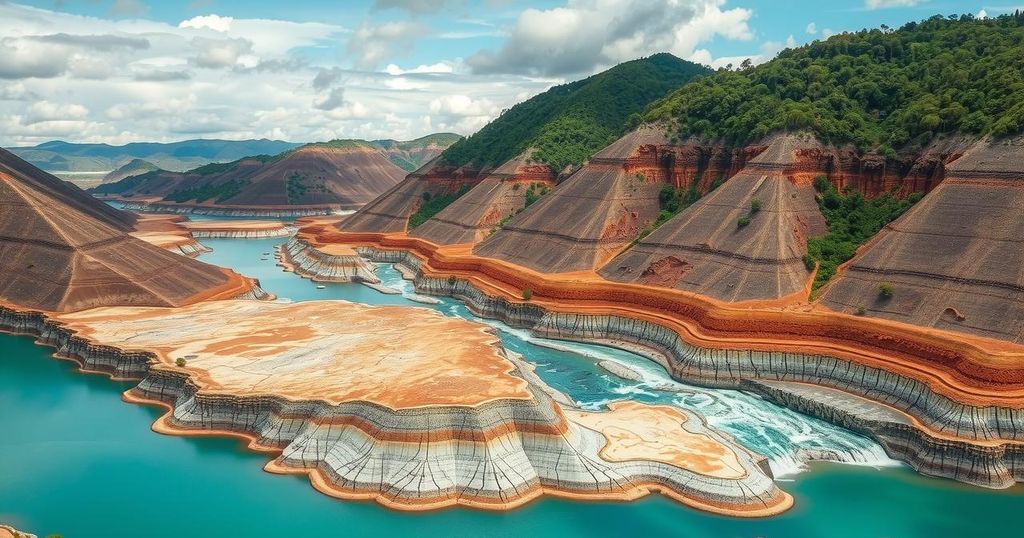Ecuador faces profound energy challenges due to severe drought, leading to blackouts of up to 14 hours daily. These outages incur significant economic losses and disrupt daily life. Experts highlight the need to diversify energy sources to mitigate the effects of climate change, underscoring the risks of reliance on hydropower. Former President Lenin Moreno criticized the country’s excessive focus on hydroelectric power as a core issue of vulnerability.
Ecuador is currently confronting a profound energy crisis which has been exacerbated by severe drought conditions affecting its hydroelectric power capabilities. The nation, which heavily relies on hydroelectricity for its energy needs, has been experiencing daily blackouts lasting up to 14 hours. These outages have led to considerable economic and social disturbances, including a staggering estimated loss of $12 million per hour. The situation poses serious challenges for businesses, schools, and essential services across the country, disrupting daily life for countless Ecuadorians.
The situation highlights a critical vulnerability in Ecuador’s energy infrastructure—its extensive dependence on hydroelectric power, which is increasingly jeopardized by the impacts of climate change. With rivers and reservoirs depleted, the inconsistency of hydropower has raised alarms among experts, who advocate for the diversification of energy sources to include alternatives such as wind and solar power. The need for a more resilient energy framework has never been more pressing as climate conditions shift and worsen.
Former Ecuadorian President Lenin Moreno has pointed out the gravity of the situation, indicating that the principal issue was the country’s “excessive focus on hydroelectric energy,” which has left its system extremely susceptible to climate-related events. This situation serves as a crucial reminder of the inherent risks of relying heavily on a single energy source, particularly in the face of escalating climate challenges.
Ecuador has historically relied on hydropower for the majority of its electricity, making its energy grid vulnerable to drought-related impacts. Climate change is expected to increase the frequency and intensity of droughts, threatening the nation’s ability to generate electricity from hydroelectric plants. As global temperatures rise and precipitation patterns become more erratic, many countries that depend on hydropower are being urged to explore alternative energy sources to secure their energy future and protect their economies from potential crises caused by environmental changes.
In conclusion, Ecuador’s dire energy crisis exemplifies the dangers associated with over-reliance on hydroelectric power amid increasing climate instability. The pervasive drought has not only led to extensive blackouts but has also underscored the urgent need for energy diversification. Nations, especially those vulnerable to climate impacts, must prioritize the development of adaptive infrastructure that incorporates a broader range of renewable energy sources to ensure economic stability and resilience against future environmental fluctuations.
Original Source: www.dailyclimate.org






